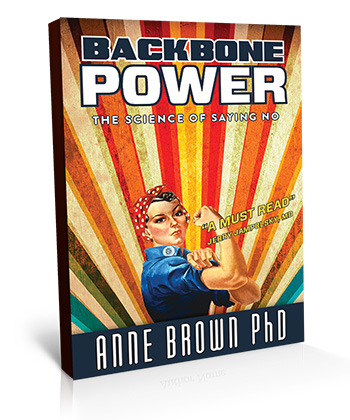
How do I know if I am acting codependent or loving? This is an excellent question and often confusing for many for different reasons. Let’s look at the definitions of codependent and loving and see what we find.
Love: An intense feeling of deep affection. For the purpose of this article, we will include some distinctions of love:
- Truth
- Strong
- Energizing
Codependency: Codependency for the purpose of this discussion is a recognizable system of learned personality traits that negatively affect knowing one’s self and others.
Codependents become dependent on “others” approval and control the situation in order to get this approval. Codependents often avoid honesty and confrontation, which can enable abusive behavior. Thus, the codependent does not require the abusive person to change or improve.
When we compare love and codependency, I believe we will find actions from love are different than codependent – actions which are based in fear. In general, it takes an emotionally strong person to live in love – not codependency.
As we said in our definitions: Codependents are driven by wanting other’s approval, so the fear of not having that approval is driving the behavior. People operating out of love are not driven by fear. Codependents may be blind to their codependency…and their fear. This way of being is just how they unconsciously decided they needed to act in order to survive.

Truth vs Deceit
If my partner lost his/her job and, after a sufficient amount of recovery time, is not looking for a new job, spends hours on the computer playing games and watches hours of TV, I can still love my partner and be frustrated/indignant at the behavior.
 Love includes my truth, which includes observations about paralysis, possible depression, inaction and other sabotaging behaviors. Codependency has me saying “dishonest/deceitful” things to all of us. I pretend not to notice my partner’s behavior; I make up excuses to justify this behavior; and I create dishonest stories to avoid telling my partner my truth. Remember: As a codependent, I need your approval so I control the situation by being nice and enabling.
Love includes my truth, which includes observations about paralysis, possible depression, inaction and other sabotaging behaviors. Codependency has me saying “dishonest/deceitful” things to all of us. I pretend not to notice my partner’s behavior; I make up excuses to justify this behavior; and I create dishonest stories to avoid telling my partner my truth. Remember: As a codependent, I need your approval so I control the situation by being nice and enabling.
If you come home every night inebriated, fall on the floor, vomit, and stay there until you wake up in the morning, I can still love you – the person that went out sober – and be indignant/sad/frustrated that you are lost to our family during these hours. I can be indignant/sad/frustrated that we have to wake up to that visual, rather than a parent/partner who wakes us all up after a good night’s sleep, participates in getting all of us off to a good day, and someone we can count on to be there for us.
If I am codependent, I am worried about your reaction, about the children’s reactions, the neighbors, my own, so I clean up the vomit, undress you and put you in bed to pretend (to all of us) that everything is fine. (I use a graphic description to illustrate this point – and this applies to all cleaning up of other’s bad choices. Remember: I do not require you to change, so I will do everything to avoid calling attention to your bad choices and resulting consequences.)
If my child is at school and I am getting reports that things are not going well, I can love my child and start to interview people – including my child – to get a more accurate picture of what is going on. I can have honest conversations with my child about a plan to help him/her have success at school. If I am codependent, I might pretend nothing is happening, blame the teacher/other kids/school, avoid the situation and say nothing to my child, or worse, tell my child it is not his/her fault. I may also avoid honest conversations with my child about acceptable behaviors in the world…because I want my child to like me. Not requiring my child to be his/her best because I am codependent is damaging to the child.
Strong vs Weak
So let’s continue with the above examples and ask the question “what is harder to do: allow the truth to unfold or cover up the truth to everyone – including ourselves?”
 I believe for me to sit you down and express my concern for your paralysis, possible depression, and sabotaging behavior takes courage. You might lash out at me in anger and disapproval. You might distract from your behavior by bringing up one of my questionable behaviors. You might just be irrational and storm out. I believe for me to enable your behavior by saying nothing, telling you not to worry, or making up excuses for you is emotionally weak. Remember: I want your approval; I will get that by enabling you.
I believe for me to sit you down and express my concern for your paralysis, possible depression, and sabotaging behavior takes courage. You might lash out at me in anger and disapproval. You might distract from your behavior by bringing up one of my questionable behaviors. You might just be irrational and storm out. I believe for me to enable your behavior by saying nothing, telling you not to worry, or making up excuses for you is emotionally weak. Remember: I want your approval; I will get that by enabling you.
I believe to allow you to lie on the floor with your choices requires strength. There are all sorts of mean things you can say to blame me for your behavior (our fight before you went out) and try to make me feel guilty by asking how could I let the kids see that. I have to be quick to remember it is not my job to clean you up and put you to bed. And in no way am I responsible for the kids seeing the consequences of your choices. I believe it is emotionally weak to rush around, trying to pretend you didn’t make the choices you made. By “covering up,” I am pretending to myself and others that things in my home are prettier than they really are. I am also enabling you to stay stuck, not grow, and be dishonest with yourself.
Let’s assume I am a busy parent and I think my child is perfect. When I get feedback from people who don’t necessarily agree with my perfect assessment of my child – the school/world – it takes strength for me to say I need to see what is going on. It takes strength to hear other’s opinions, which may not agree with mine, about my children. Maybe something I taught them doesn’t work very well in the school situation. Maybe I was ignoring a biting behavior, a disrespectful behavior, a self- centered behavior (because I didn’t want to confront my child) that is disruptive in school. Remember, the codependent needs everyone’s approval; raising children becomes a challenge because I can’t do the “dirty work” part. It is up to me, as part of loving my children, to let them know which behaviors will sabotage their success in the world. It is not my goal to be my child’s best friend.
Energizes vs Saps
If I have the courage to have an honest conversation – one that supports you to start looking for a job – we will start to be connected. I will feel I am not alone rowing the family boat, and the whole family will begin to be energized. If I walk around resentful of your paralysis – and you are unable to feel good about yourself – we will sap the energy from our family.
If I am clear that your poor choices are yours and, thus, the consequences belong to you, I will have a better chance of keeping my energy, and lovingly detaching from your negative choices.
If I can “risk” my children not being my best friend, I will be energized by being their best parent. Children don’t always like their parents and that is okay. Families who operate from love, not codependency, have the courage to be honest.

This article was originally published on Recovery.org
Start saying Yes to yourself and No to being used/abused/exploited!
New Release!! “Backbone Power The Science of Saying No updated and abridged Audiobook” narrated by Dr. Anne Brown, the author herself. Do the exercises and see results! Click HERE



 Facebook
Facebook LinkedIn
LinkedIn Twitter
Twitter Youtube
Youtube StumbleUpon
StumbleUpon
Leave a Reply